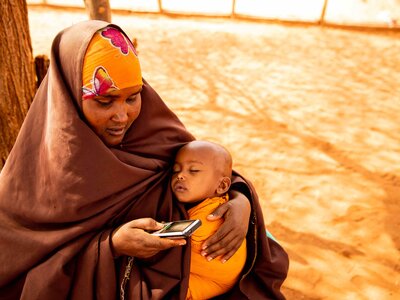Cash transfers
- US$2.8 billion
- provided by WFP in cash-based transfers to 51.6 million people in 2023
- US$137 million
- provided by WFP in commodity vouchers to 5.9 million people in 2023
Sending money to people is empowering. When a disaster strikes, or conflict flares, money is often the first thing people need to buy food or pay for transport and temporary accommodation to get out of harm’s way. Not everyone needs the same thing at the same time. WFP sends people money to give them the flexibility to choose what they need, when they need it. People spend most of the money WFP sends them on food, but they also can use it to pay medical bills, rent or school fees. Sending people money means that they don’t need to make impossible trade-offs, like deciding to eat less so that they can keep all their children in school.
WFP sends money to people in places such as Somalia, Yemen and Afghanistan, where markets are functioning but people can’t afford to buy food. When people spend money in local economies, it creates jobs and supports markets. In this way, people also benefit indirectly from WFP’s assistance.






